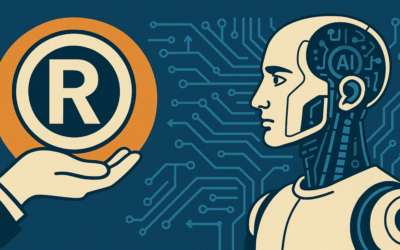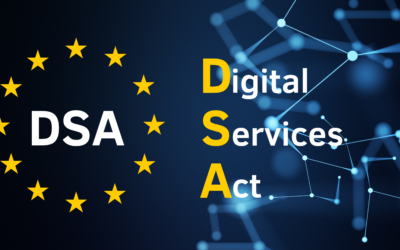Press-publishers’ rights in Germany: a « Peau de Chagrin » 1
Amidst the hustle and bustle of the busy Christmas week, the German Federal Competition Authority (Bundeskartellamt or BKartA) did not make any favours to the German press publishers by considering that Google had made a series of important adjustments « to the benefit » of publishers, and closed the procedure opened at the request of Corint Media, the German collective management organisation that administers the press-publishers’ rights 2 .
But this decision, which concerns the Google News Showcase service (1), is more than questionable, since it seems to trust Google which only makes commitments of resources (2).
Nor does it rule on the remuneration of publishers under the press law, which is at the heart of this procedure (3).
1. Google News Showcase service at the centre of the procedure
At issue in this procedure is the Google News Showcase service offered by Google in an ultra-confidential manner to a handful of publishers selected from among some 3000 German publishers.
Google had offered these « Chosen Ones » a service of highlighting certain articles, in addition to various commercial benefits and support for the said press publishers in developing their online activities, all of which was paid for a fixed period. What might seem like a nice idea, turned out to be a way of circumventing the legal rights of press publishers.
Indeed, by offering such a commercial agreement to these few chosen publishers, Google was at the same time granted the new press-publishers’ rights, almost free of charge. Google linked the signing of the commercial agreement to the transfer of these press-publishers’ rights.
However, it is this new right, this new asset created by the European legislator and intended to compensate for the massive losses suffered by press publishers as a result of social networks and search engines in particular, which feed on their content free of charge to offer it to their customers and on the readings of Internet users to track their interests and sell targeted advertising, which should have been given priority. Moreover, the display of
press content and its preview on Google and Facebook services not only replaces page views and thus advertising revenue, but also reduces readers’ loyalty to the newspaper brand concerned and thus the chances of taking out subscriptions and digital subscriptions.
But Google has divided and the Chosen publishers, often with their backs against the wall after years of losses, have preferred to accept this Showcase deal than to have nothing – according to the good old principle of « one bird in the hand is worth two in the bush ».
And above all, how can you refuse something from Google, the most powerful search engine, without risking losing tens or even hundreds of millions? German publishers have already experienced the difficulty of this arm wrestling match. In 2013 3 , the German legislator, a pioneer in this field, introduced a press publishers’right. But Google, already setting up the modus operandi it would later develop in France, refused to recognise this right and required publishers to transfer it to them free of charge.
Of those who refused, it only put a hypertext link. In a few days, the losses incurred by the publishers amounted to several tens of millions, as the number of visitors to their sites fell. As in France a few years later, the publishers had to give their authorisation and go to court to try to enforce their rights, without any success 4 .
As for the negotiations regarding the press-publishers’ rights themselves, which the non-chosen publishers, together with those who had refused this agreement, were trying to conduct, they were made so difficult, the amounts proposed were so low, that this right was reduced to nothing. A sham of a negotiation.
On top of that, publishers could only sign the Showcase agreements with Google if they did not have their press-publishers’ rights administered collectively, i.e. in Germany, by the collective management organisation Corint Media. In other words, either the publishers accepted the conditions or they risked getting nothing. Because Corint Media’s negotiations with Google were not successful.
2. After a year and a half of proceedings, a few commitments from Google later, the Bundeskartellamt closes the proceedings
In its press release of 21 December 2022 5 , the Bundeskartellamt welcomes the progress made. However, these appear to be disappointing, as they take note of the promises made by Google, without appearing to be accompanied by any guarantees, or to settle the question of payment of press-publishers’ rights :
– « Google has abandoned its plans to integrate Showcase into Google’s general search. A publisher’s participation or non-participation in Google News Showcase will continue to have no impact on the ranking of search results”.
This is a necessary commitment, as many publishers who did not sign the famous agreements feared that they would be disadvantaged in the display of results.
– « German publishers can now license their related right for press content separately from a Showcase contract”. However, as the agreements are ongoing and the rights have been « assigned » for a few years, collective management seems far away.
And how can we guarantee that showcase contract negotiations will remain neutral if related rights are taken out of them?
– « Other publishers may participate in the Google News Showcase”. But this promise is not precise. The BKartA writes: « This will be done with the aim of obtaining non- discriminatory access to this platform”.
Who will be the publishers affected? All of them? Under what conditions?
« Google will implement further measures in the coming weeks, » the BKartA
continues. What measures? For what purpose? And of all these uncertainties, the BKartA will « endeavour » to dispel them.
It is astonishing that the Bundeskartellamt has placed its trust in Google, which has been the subject of numerous anti competitive proceedings in Europe and has refused for years to recognise the press publishers’ rights. It should be remembered that it was because German and Spanish attempts to create a press neighbouring right failed at national level that it was the European legislator who had to impose this remuneration at European level by the Directive 2019/790 of 19 April 2019.
3. The Bundeskartellamt does not consider itself responsible for the remuneration of publishers
As for the dispute over the remuneration of publishers for the press-publishers ’rights, a crucial issue, the Bundeskartellamt replied that it « has renounced (sic) a thorough examination and intervention on this subject« .
Regarding the form, we note that the BKartA did not impose anything, nor did it judge anything, it « encouraged Google to propose to Corint Media a remuneration for the press-publishers’ right that was at least at the level of the licence agreements" already concluded. It would be difficult to find less restrictive terms than « encourage to propose »…
In substance, as has been said, the remuneration of press-publishers’ right in Showcase contracts is either nil or derisory. Imposing similar royalties is tantamount to reducing this related right to a peau de chagrin.
After all, it was obviously in Google’s interest to inflate the commercial payments it dominated in the showcase agreements – temporary, inalienable, negotiable by the
strongest – instead of rewarding press-publishers’ rights. Especially since German copyright law offers Google a wonderful tool: If the parties cannot agree on the amount of an appropriate remuneration, one of the tools available to the judge is to compare the proposed remuneration with the market remuneration. In other words: If one only relies on the zero or low amounts provided for in the showcase agreements for press-publishers rights, they are ridiculously low and in any case completely below the standard
remuneration in German copyright law, which is estimated to be rather around 10% of the turnover.
The BKartA washes its hands of the matter, it is not competent, the Office explicitly refers this assessment to the special arbitration procedure provided for at the German Patent Office . Apart from the fact that this arbitration will take another year, that the DPMA will only make a non-binding « proposal », whereby the parties are free to challenge this proposal before the court , then to appeal, then to go before the Bundesgerichtshof (Federal Court of Justice), – and why not, while they make a small reference to the European Court of Justice – and meanwhile inflation is going on, and what will we see at the end of this perhaps eight year long procedural tunnel?
However, the Bundeskartellamt had been given enormous powers of action by the reform of its competences and by the new §19a of Gesetzes gegen den unlauteren Wettbewerb (UWG) – the german Unfair Competition Act 6 . An elephant giving birth to a mouse.
As for the interest of the Google News Showcase for publishers, the Bundeskartellamt does not say anything about its interest. This is a pity because this question is fundamental. What
service does Google really provide, since the articles are not favoured by the search engine? Not much. And for good reason, it is a trap to block the implementation of the press publishers’ right.
In France, the Competition Authority (Autorité de la Concurrence) has been very active, decisive, and firm. It fined Google 500 million euros for abusive resistance and obliged it, under a fine of 300,000 euros per day of delay, to provide transparent information to publishers and to negotiate correctly with them 7 .
In a separate document, nicely entitled FAQ 8 , the BKartA spontaneously but surprisingly tries – on the last page – to anticipate any criticism that might be levelled at it in this regard, and clearly indicates that its procedure has nothing to do with the French procedure. It should be noted in passing that the BKartA does not mention the 500 million euro fine imposed by the French authority on Google. Firstly, it considers that the procedures cannot
be compared, as their subject matter is different. In France, the issue was Google’s refusal to negotiate properly with the publishers themselves, whereas the procedure before the BKartA would only concern the possible effects of hindrance and discrimination to the detriment of the collective management organisation Corint Media, which could result from the ‘Google News Showcase’ offer. But isn’t that the same thing? What does this collective management organization do if not represent publishers? The Office goes on to say that everything is fine, « license agreements » have already been concluded with « publishers » in Germany, and since February 2022, an offer for a license has been made to Corint Media, so that there is no refusal to negotiate, but only disagreement on an amount. Except that proposing a derisory amount is equivalent to a refusal to negotiate. Finally, he said that he had compared the results with France, but that the results would not differ to such an extent that he suggested continuing the competition authority procedure in Germany. We know that lawyers are not mathematicians, but to estimate that 3.2 million (what Google offered to Corint Media 9 , which represents a third of German press publishers, whose market is larger than the French one) would be equivalent to more than 70 million, sums negotiated to date in France, negotiations being still ongoing, leaves one doubtful. And the last sentence of the FAQ is marvellous, the Office concludes that « due to the novelty of the related », it does not have the means to rule on this issue anyway, as it is too new, « there are no competitive markets suitable for a comparative analysis ».
The Bundeskartellamt is nolens volens, a case law: it states that the judge could not therefore rule, if the law is new.
This decision has far-reaching consequences. It has turned European press law into a shambles.
In France, publishers have fought a real battle with Google, because they have been fully supported by the Autorité de la Concurrence (French Competition Authority), which has exerted very strong pressure, because they have been supported by the executive branch 10 , and by the Assemblé Nationale (French Parliament), which has created an investigation and monitoring committee 11 . They were finally able to start reaping the benefits of this related right. Such a struggle has also taken place in Australia 12 .
The press « makes a fundamental contribution to public debate and to the proper functioning of a democratic society », as stated in the European directive that created this right 13 . The existence of a pluralist press is the only condition for reliable information. However, the press has been suffering for years from the absorption of its revenues by the Silicon Valley.
The availability of news articles online has enabled search engines, social networks and other news aggregators to generate significant revenues. Not that these articles were sold by them, but they fed the content of these services for free, which were thus able to provide the information expected by Internet users for free, thus increasing their number of visitors exponentially. Their advertising services have thereby become increasingly attractive, as they capture the bulk of the audience. But above all, the processing of personal data, i.e. the most intimate information gathered when reading articles, enables them to offer increasingly targeted advertising services. It is impossible for the press to fight against this centrifugal force if it has no rights to invoke. Subscriptions have not kept up, press advertising revenues have halved, and the Californian giants now account for almost all global advertising revenues.
The die hast not been cast in Germany, of course. But the remaining German press publishers, who have been struggling for more than ten years without the major support provided in France by the government and their competition authority, are likely to tire of the negotiations and procedures, and prefer to sign even a modest agreement.
Marie-Avril Steinkuehler
Lawyer at the Paris and Berlin Bars
Marie-Avril Roux Steinkuehler is a lawyer at the Paris and Berlin Bars. In 2022, she accompanied Corint Media to bring it closer to the main players in the field of press-publishers’ rights in France and to develop a European network of collective management organisations in charge of press publishers’ rights.
(1) The Wild Ass’s Skin by Honoré de Balzac
(3) https://www.buzer.de/gesetz/4838/al148015-0.htm
(4) The publishers represented by Corint Media, the collective management organisation in charge of the management of related rights in Germany, had filed an injunction against Google under competition law. At the same time, Corint Media filed an application with the arbitration body of the German Patent and Trademark Office, which is provided for under the german Collective Management Organisations Act (VGG) as the first qualified body in disputes between collective management organisations and users, to have the appropriateness and enforceability of the tariff proposed to Google determined. The award was subsequently challenged, and the case was brought before the Berlin Regional Court (equivalent to the Court of Justice). The Berlin court described Corint Media’s claims against Google (for information on the turnover generated using press publications and – as a second step – for payment for use) as « at least partly justified ». However, the Berlin Regional Court stayed the proceedings and asked the CJEU to give a preliminary ruling on whether the German press-publishers’ rights regulation should not be notified in accordance with Directive 98/34/EC in conjunction with Directive 98/48/EC (which had not been done in 2013). Google had argued that the right to protection of press performances was not applicable, as the Federal Government had failed to notify the European Commission of this right. The CJEU ruled on 12 September 2019 that there was a notification requirement (C 299/17).
(6) https://www.gesetze-im-internet.de/gwb/__19a.html
(7) https://www.autoritedelaconcurrence.fr/sites/default/files/integral_texts/2021-07/21d17_0.pdf
(9) https://www.corint-media.com/3_2-millionen-euro-fur-presse-rechte/
(10) See for example the statements by Mr Bruno Le Maire, Minister of the Economy, and Mr Emmanuel Macron,
President of the Republic, Le Point, 14 March 2022 https://amp-lepoint-
fr.cdn.ampproject.org/c/s/amp.lepoint.fr/2468008
(11) https://www.assemblee-nationale.fr/dyn/15/rapports/dv/l15b4902_rapport-information#_Toc256000055
(12) https://edition.cnn.com/2021/02/24/media/australia-media-legislation-facebook-intl-hnk/index.html
(13) Recital 54 of the DAMUN Directive https://eur-lex.europa.eu/legal-content/FR/TXT/?uri=CELEX%3A32019L0790

Marie-Avril Steinkuehler
Lawyer at the Paris and Berlin Bars.



